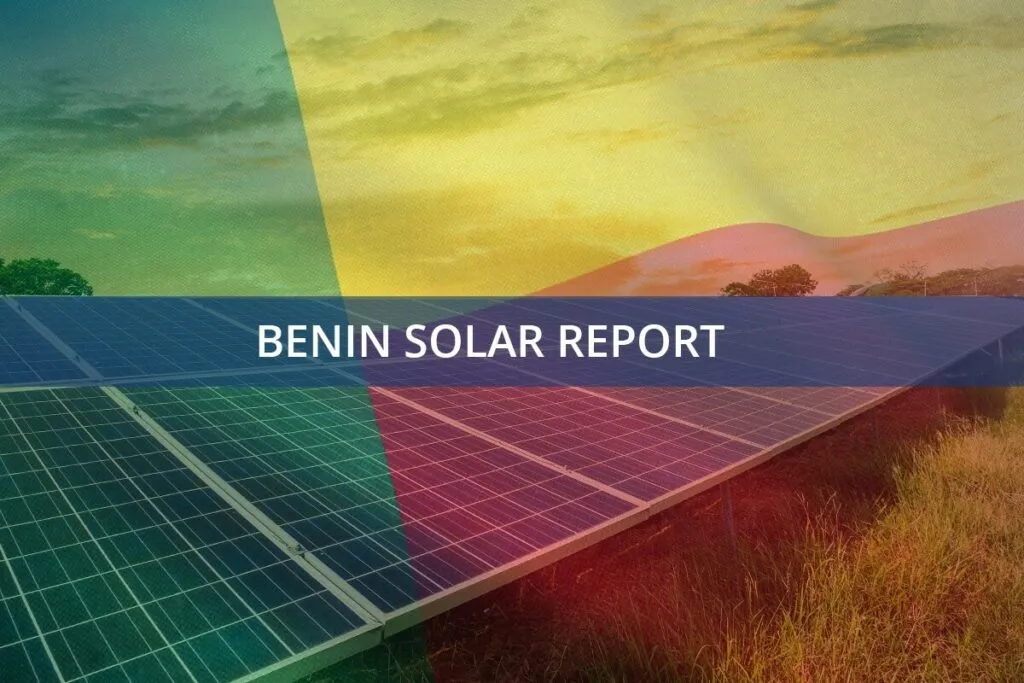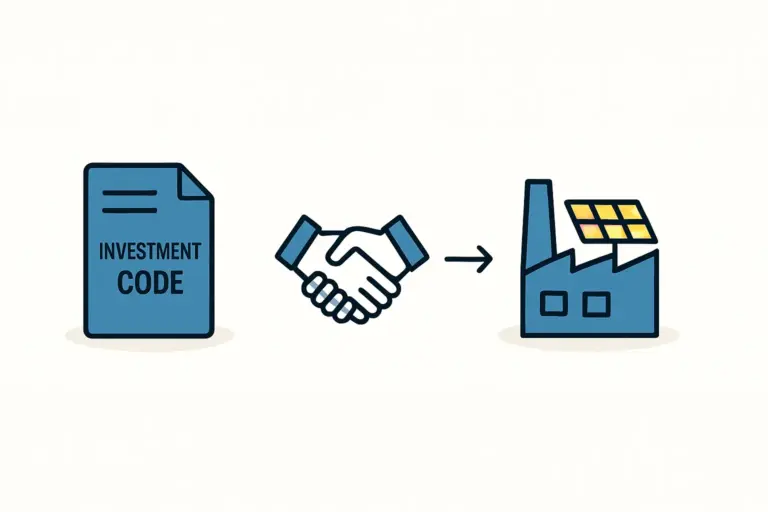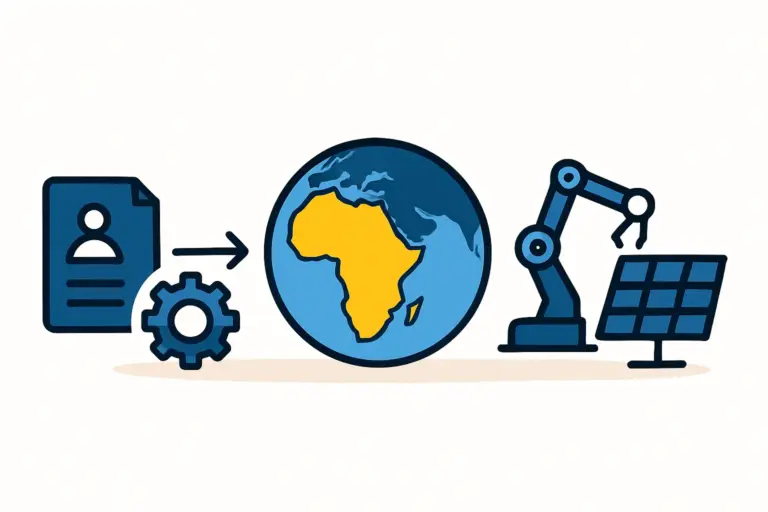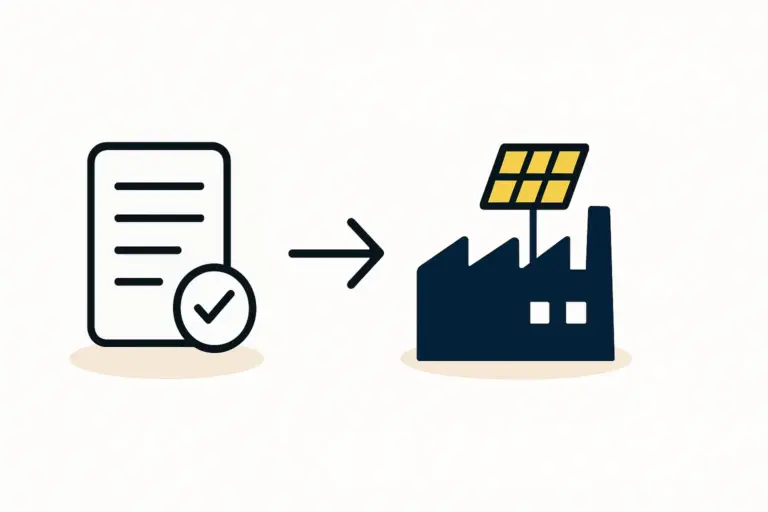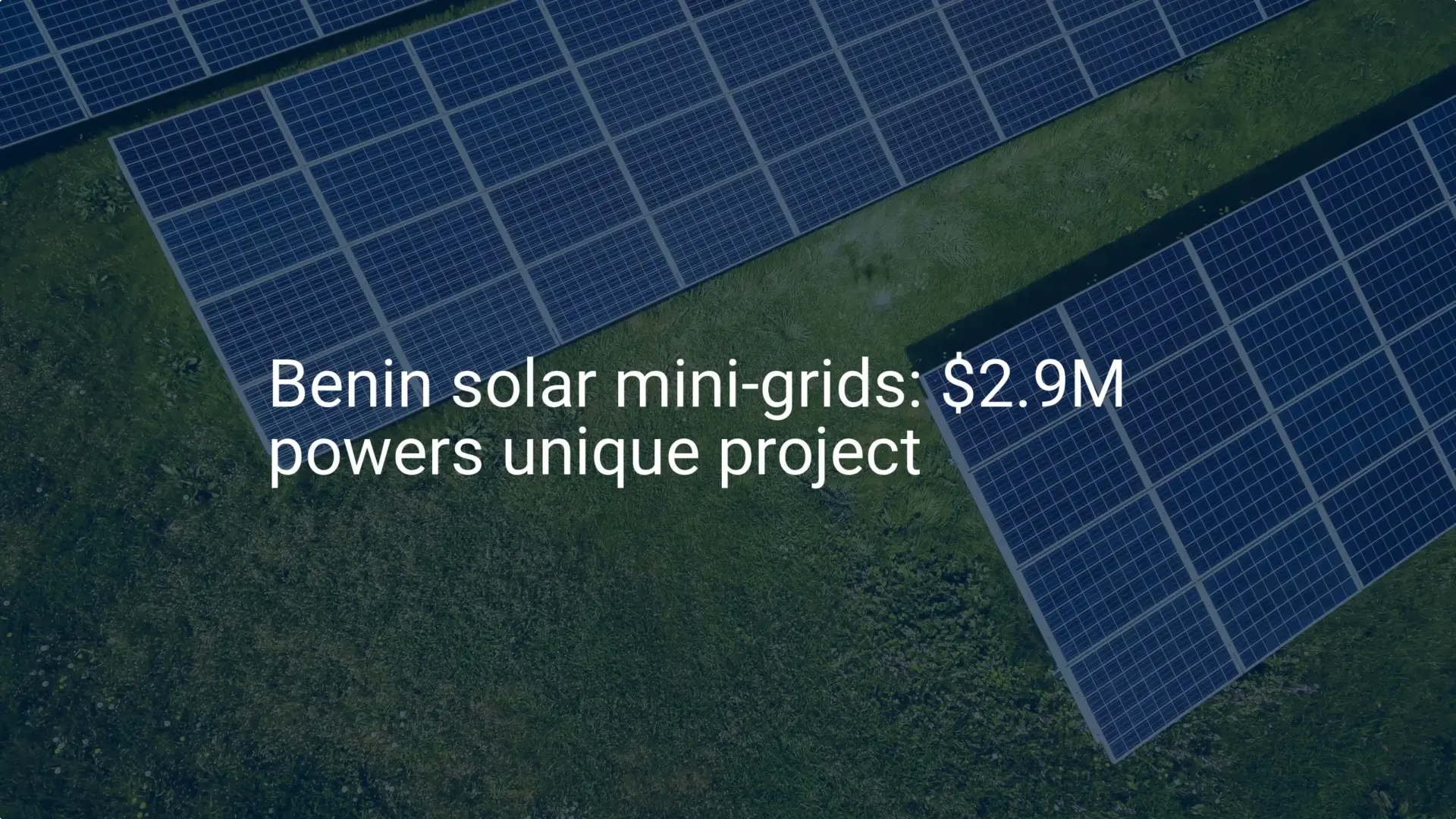An entrepreneur envisions a state-of-the-art solar module factory in Benin. The business plan is solid, financing is secured, and the ideal machinery has been identified in Europe or Asia. But a critical gap lies between the supplier’s port and the new factory floor—one filled with customs declarations, tariffs, and logistical hurdles that can seem overwhelming.
Navigating this import process is not merely an administrative task; it’s a fundamental financial and operational challenge. Any misstep can lead to significant budget overruns and project delays. A well-planned import strategy, however, can unlock substantial cost savings and accelerate your time-to-market.
This guide offers a clear overview of the procedures and duties involved when importing solar production machinery into Benin.
Table of Contents
The Strategic Context: Benin’s Commitment to Renewable Energy
Importing industrial equipment into Benin is a process that unfolds within a supportive national and regional framework. The government of Benin has demonstrated a clear commitment to renewable energy, aligning with the African Union’s Agenda 2063 and the UN’s Sustainable Development Goal 7 (SDG 7). This commitment, underscored by a goal to generate 15% of its electricity from renewable sources by 2030, creates a favorable environment for investments in local solar manufacturing.
Furthermore, Benin is a member of key economic blocs, including:
- The Economic Community of West African States (ECOWAS)
- The West African Economic and Monetary Union (WAEMU)
- The African Continental Free Trade Area (AfCFTA)

These memberships are more than political affiliations—they directly shape the trade policies and tariff structures that apply to imported machinery, a critical factor in understanding Benin’s potential for solar manufacturing.
Deconstructing the Import Tariff and Tax Structure
When a container of machinery arrives at the Port of Cotonou, it is subject to a series of taxes and levies that require accurate budgeting. These costs are primarily calculated based on the CIF value (Cost, Insurance, and Freight) of the goods.
The foundation of the customs duty calculation is the ECOWAS Common External Tariff (CET). This tariff classifies all imported goods into five categories with corresponding rates.
- 0% for essential social goods
- 5% for essential goods, raw materials, and capital goods
- 10% for intermediate goods
- 20% for final consumption goods
- 35% for specific goods for economic development

In addition to the CET, several other taxes and levies apply:
- Value Added Tax (VAT): The standard rate is 18%.
- Droit Fiscal d’Importation (DFI): A fiscal import duty of 1%.
- Statistical Fee (Redevance Statistique – RS): A fee of 1% for the collection of trade data.
- ECOWAS Community Levy (Prélèvement Communautaire – PC): A levy of 0.5% that funds the ECOWAS commission.
- WAEMU Community Solidarity Levy (Prélèvement Communautaire de Solidarité – PCS): An additional levy of 0.8% for WAEMU member states.
On a purely mathematical basis, these cumulative levies can appear substantial. However, strategic planning and proper classification can dramatically alter the final amount payable.
The Critical Role of HS Code Classification
The single most important factor in determining the CET rate is the Harmonized System (HS) code assigned to your machinery—a standardized international system for classifying traded products. An incorrect classification can place your equipment in a 20% tariff band instead of the correct one.
For a solar module factory, the essential machinery for a production line is unequivocally classified as capital goods or industrial machinery. According to the CET structure, such equipment should fall under the 5% tariff band. Using the precise HS code in your customs declaration is therefore paramount, requiring meticulous documentation and clear communication with your supplier and local customs agent.
A difference of 15 percentage points on a shipment valued at hundreds of thousands of dollars represents a significant and avoidable expense.
Leveraging Benin’s Investment Code for Major Advantages
Beyond correct classification, the most powerful tool for an investor is Benin’s Investment Code. This legislation is specifically designed to attract foreign and domestic investment in priority sectors, including manufacturing and renewable energy.
For qualifying projects, the Investment Code offers substantial fiscal incentives, which can include full exemption from all customs duties and VAT on imported capital goods. To benefit from these advantages, an investor must submit a detailed application to the Investment and Export Promotion Agency (APIEx). A successful application transforms the financial viability of the project.
Structured planning pays dividends here. An investor focused solely on the technical aspects of a turnkey factory setup might overlook this opportunity. Securing these exemptions requires a comprehensive dossier, including a robust business plan, proof of financing, and a clear outline of the project’s economic benefits for Benin. This process is a core part of creating a viable business plan from the outset.
Credibility Insight: Based on experience from J.v.G. turnkey projects in emerging markets, engaging with investment promotion agencies early is a highly effective way to optimize a project’s capital expenditure. Clients who successfully navigate this process often reinvest the saved capital into training or raw materials, accelerating their path to profitability.

Practical Logistics: From Port of Arrival to Factory Floor
A theoretical understanding of tariffs is essential, but it must be paired with practical execution. As the primary gateway for all maritime cargo entering Benin, the Port of Cotonou is a vital economic hub, but one that can experience congestion and administrative delays.
To ensure a smooth clearance process, the following documents are essential:
- Commercial Invoice: Detailing the buyer, seller, value, and description of the goods.
- Bill of Lading (B/L) or Airway Bill (AWB): The contract of carriage from the shipping line.
- Packing List: A detailed inventory of the contents of each crate or container.
- Certificate of Origin: To verify the country where the goods were manufactured.
- Inspection Certificate: Benin often requires a pre-shipment inspection, typically conducted by a designated company like BIVAC. This results in an inspection report that is mandatory for customs clearance.
Given the complexity of clearing specialized industrial machinery, working with an experienced and reputable local customs clearing agent is not a luxury—it’s a necessity. An effective agent ensures all documentation is correct, manages interactions with customs officials, and anticipates potential issues before they become costly delays.
Frequently Asked Questions (FAQ)
What is the total tax and duty percentage I should budget for my machinery?
This figure can vary dramatically. In a worst-case scenario with incorrect classification, it could exceed 40% of the CIF value. In the best-case scenario, by securing exemptions under the Investment Code, your liability for customs duties and VAT could be reduced to 0%, leaving only the smaller levies. For most well-planned projects, however, you can achieve classification in the 5% CET band plus other applicable levies.
How long does the customs clearance process typically take in Cotonou?
With all documents in order and a competent clearing agent, the process can take from one to three weeks. However, delays can occur due to port congestion, customs queries, or incomplete paperwork. It is prudent to factor a buffer of at least four weeks into your project timeline.
Can I handle the customs process myself to save money?
For high-value, specialized equipment, this is strongly discouraged. The nuances of HS code classification, documentation requirements, and engagement with customs authorities require professional expertise. The cost of an experienced agent is minor compared to the potential costs of delays and incorrect duty payments.
Do these rules change if I source machinery from a neighboring ECOWAS country?
In principle, goods that originate within the ECOWAS region and meet the “Rules of Origin” criteria can be traded duty-free. However, the process for proving origin can be complex. It is essential to verify that the goods truly qualify under the ECOWAS Trade Liberalization Scheme (ETLS) before assuming no duties will apply.
Conclusion: A Pathway to a Successful Importation
Importing solar production machinery into Benin is a multi-layered process that requires an understanding of national strategy, regional trade agreements, and detailed fiscal regulations. While the list of potential taxes and levies may seem long, the government of Benin offers clear pathways for serious investors to significantly reduce this burden.
Success depends on meticulous planning, correct classification of goods, and proactive engagement with the opportunities offered by the Investment Code. By treating importation as a strategic project phase rather than a final administrative hurdle, an entrepreneur can protect their budget, adhere to their timeline, and move one step closer to launching a successful solar manufacturing operation in Benin.

